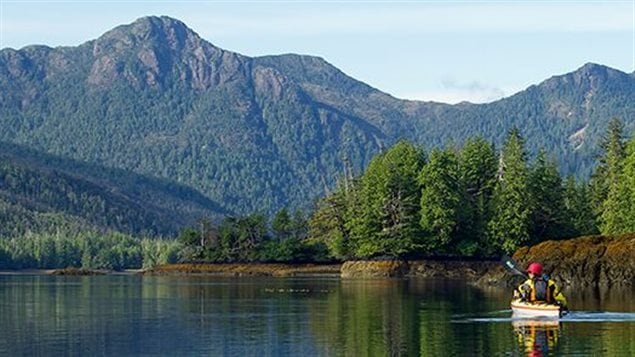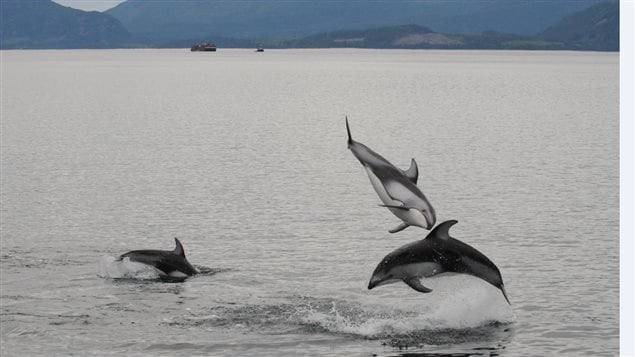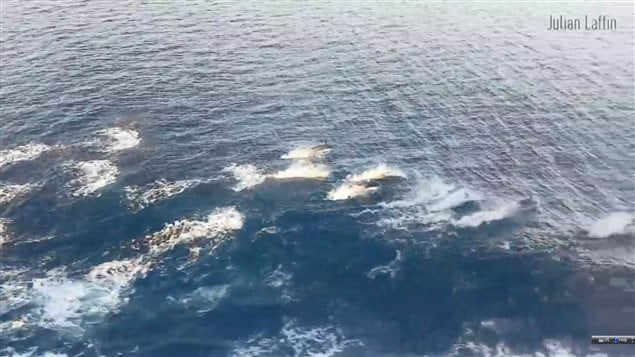
Many islands, many ferries
There are many ferries that operate on Canada’s Pacific coast and in addition to seeing the fabulous scenery there, some passengers got to see several white-sided dolphins frolicking in their ship’s wake on New Year’s Day.
CBC reports the ferry was travelling from Nanaimo on Vancouver Island to Horseshoe Bay which is on the coast of the province of British Columbia. That area is dotted with islands covered in lush forests. Passenger Julian Laffin saw the dolphins and took a video.
Dolphins linked to ancient Indigenous communities
The Vancouver Aquarium indicates that this kind of dolphin usually travels in pods of 10 to 100 animals, but there have been sightings of groups of up to 2,000. Remains of this kind of dolphin have been found in Indigenous waste heaps that are 2,000 years old.
The white-sided dolphins were not often seen in this region during the 19th and 20th centuries, but made a comeback in the 1980s. The aquarium’s website indicates that their long absence may have been related to a change in ocean temperatures and a shift in where their prey was located.

Evidence of smart dolphins
These dolphins eat herring, capelin, Pacific sardines, squid, anchovies, salmon and other fish. They are eaten by Bigg’s killer whales and sharks. The website says that “some killer whale pods drove groups of dolphins into small bays and killed them en- masse but this behaviour is no longer as common, suggesting the dolphins have learned to avoid this trap.” The dolphins are listed as not at risk on Canada’s Species At Risk Act.







For reasons beyond our control, and for an undetermined period of time, our comment section is now closed. However, our social networks remain open to your contributions.